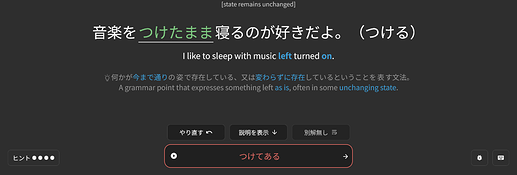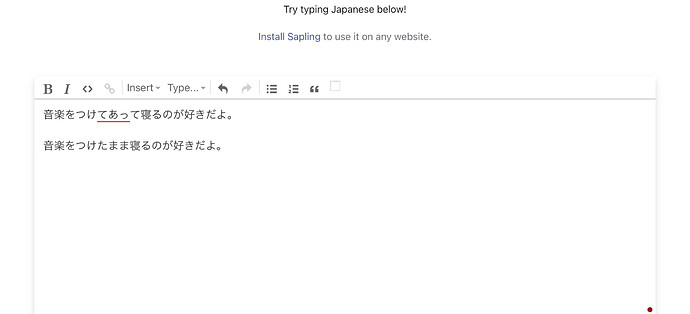I don’t understand why my answer was wrong.
According to ChatGPT, “てある” implies a deliberate action or preparation by someone to achieve a particular state, while “まま” describes a state that continues or remains unchanged without specific intervention. Understanding the context and intention of the speaker is essential for correctly using or interpreting these expressions in Japanese.
Leaving the music on while sleeping sounds like a deliberate action, doesn’t it?


